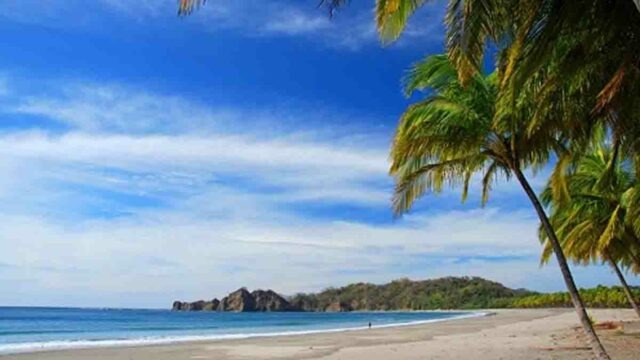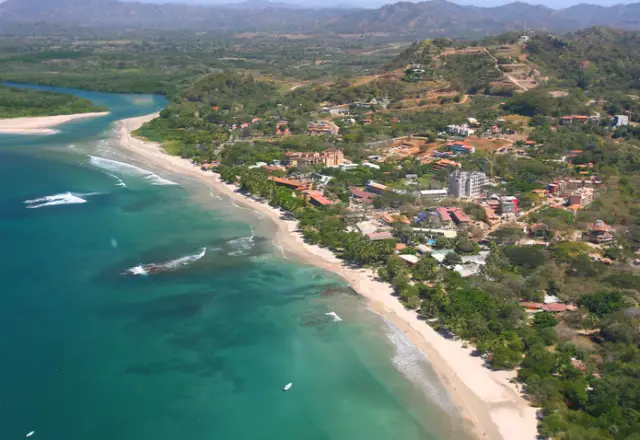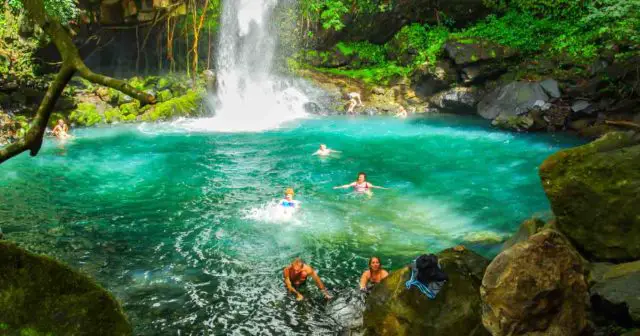Costa Rica is considered one of the Central American countries with the greatest tourist attractions in the region, which inspires locals and visitors to enjoy its extraordinary and varied nature represented by a virgin coast, beautiful mountains, plains and a series of splendid volcanoes between other cultural tourist spaces that make this country a tropical paradise.
Guanacaste is part of the northeastern region of Costa Rica, this province shows off its natural beauty, it also bears the name of the country’s national tree in its honor, it comes from the Aztec language “Guautil” which means tree; “Nacaztli” means ear, its indigenous symbology is the tree of ears or the tree that hears. This is due to the shape of the plant and its fruits, hard, bright brown ear-shaped pods that, with their resplendent foliage, combine with the volcanic peaks of the Guanacaste mountain range with wide plains that open towards the Pacific.

Cultural roots
The Guanacaste region still maintains a great cultural influence from its ancient aboriginal tribes, inhabited first by the Corobicíes, from the culture of the Intermediate Area, and later by the Chorotegas and Nahuas groups, from the Mesoamerican culture of pre-Columbian times. Currently some of Its inhabitants still preserve some physical traits and cultural expressions of these ethnic groups, such as Nicoyan pottery, which is a national heritage of Costa Rica. The Matambú Indigenous Reserve is located on the Nicoya Peninsula.
Guanacaste is the cradle of many aspects of Costa Rican folklore, such as music, instruments such as the the “marimba” and the “quijongo”, traditional dances such as the “Punto Guanacaste”, and cuisine derived from corn and cattle. This culture is typical of the area´s farming lifestyle.
A main tourist destination
The province of Guanacaste is one of the best known areas of the nation, due to its exotic geographical characteristics. With exuberant natural options for recreation, there are countless reasons why locals and international visitors choose Guanacaste as their main tourist destination; attracted by the long days of summer, the active culture and the incomparable wildlife of this place.

In this Pacific territory of Costa Rica is also the Guanacaste Conservation Area (ACG), declared a World Heritage Site by the United Nations Educational, Scientific and Cultural Organization (UNESCO) in 1999. It includes, among others, the Santa Rosa National Park, the Guanacaste National Park and the Rincón de la Vieja National Park, covering 1470 km² of protected areas. In addition to the Palo Verde and Barra Honda national parks. It has one of the few blue zones in the world, in the Nicoyaque peninsula that connects health and longevity with natural beauty.
In the center of the province is the tectonic depression of the Tempisque valley with large extensions of plains, which makes it a suitable land for raising livestock and growing grains, especially those that make up the Tempisque river valley, which is why which the province receives the nickname of “lapampa” and also “la bajura”. Guanacaste is famous for its landscapes, its beaches that border the Pacific Ocean coastline, and a much sunnier and drier climate than in the rest of the country.
Explore its Beaches
Due to its extraordinary geographical location, located in the northwest corner of Costa Rica, Guanacaste has beautiful beaches that position the country with its two coastlines, and a tropical climate accompanied by multiple biodiversity. Exciting aquatic activities encouraging locals and visitors alike to enjoy outdoor activities like surfing, climbing the rocky coasts or simply resting in the sun along the endless stretch of beaches that meet the wishes of any person who visits them.
Among the most beautiful beaches in Costa Rica are: Tamarindo, a sunny place almost all year round, where the weather is pleasant without much humidity. Visitors can do everything from surfing, ATV tours, diving, zip-lining, horseback riding, hiking and much more. Nestled between two mountains, Playa Hermosa is an ideal place for travelers who want to know a place that provides relaxation as well as staying away from the crowds. Playa Hermosa is near the Rincon de la Vieja National Park, Palo Verde National Park, and Santa Rosa National Park, so there are plenty of opportunities to experience wildlife in this area.
Other virgin coasts in this region are Playa Panamá, Playa Grande, Pan de Azúcar, Playa Ocotal, Playa Flamingo and Playas del Coco, which also offers varied maritime experiences for individual, couples and family enjoyment.
Land of Volcanoes
Guanacaste also has majestic volcanoes that encompass six wildlife zones in the Rincón National Park. From its active volcanoes and deep soils to its dreamy visit to waterfalls, this place is perfect for any nature or wildlife lover. Travelers will encounter mountains and cloud forest as well as diverse ecosystems along a trail that ventures up the slopes of the park’s volcanoes.

The Santa María Volcano reaches a height of 1,916 meters, which is one of the nine craters in Rincón de la Vieja. This park is also home to a large amount of flora and fauna, including pumas, jaguars, sloths and tapirs among other wildlife with which tourists can interact. So if you go to Costa Rica, Guanacaste is a must to enjoy the splendid nature.

